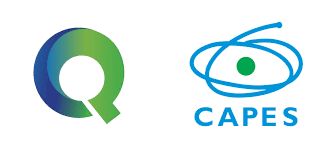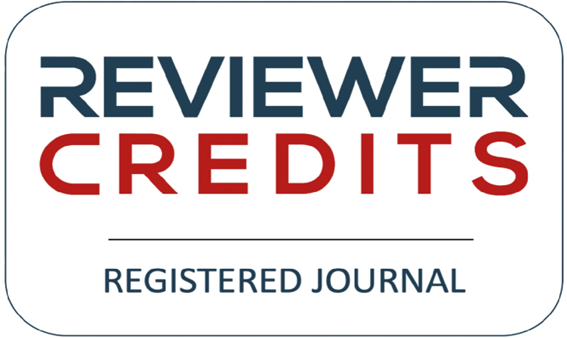Research Ethics and Integrity Policy
The Perspectivas Contemporâneas journal declares its commitment to practices that value research ethics and integrity and expects the same from everyone involved in the editorial process: editors, reviewers and authors.
This policy follows the guidelines of national and international documents to ensure compliance with the principles of ethics and research integrity, namely: Guide to good practices for strengthening ethics in scientific publication of the SciELO Program, Guidelines of the 2nd World Conference on Research Integrity and Guidance for Editors: research, audit and service evaluations (COPE).
Editorial Team Commitments
Confidentiality – the Editorial Team undertakes to maintain the confidentiality of any information related to manuscripts submitted to the journal throughout the editorial process.
Impartiality – the chief and associate editors are responsible for evaluating manuscripts in desk review and also for deciding which manuscripts should be published by the journal. Therefore, they are committed to evaluating and deciding whether or not to publish, based on what is provided for in the journal's Editorial Policy, in an impartial manner. The Editorial Board can be consulted to assist in any necessary decisions.
Editors must also be impartial in resolving conflicts arising from complaints about misconduct (eg plagiarism, misuse of data, attribution of improper authorship) in the research development of a manuscript submitted to the journal, based on the flowchart proposed by the COPE's Core Practices for conflict resolution: Suspected ethical problem in a submitted manuscript (COPE).
Transparency - must be observed by the Editorial Team when preparing, complying with the journal's policies and conducting processes to verify complaints about misconduct in the development of the research of a manuscript submitted to the journal.
Conflict of Interest – the Editorial Team must inform the editor of any type of potential or existing conflict of interest before accepting the evaluation or during the evaluation process. If the conflict of interest is related to the Editor-in-Chief, the Editor-in-Chief must refuse the evaluation and forward the activity to the associated editors or to one of the members of the Editorial Board.
Reviewers' Commitments
Confidentiality – is based on the commitment to maintain the confidentiality of any information related to the manuscripts assigned for their evaluation and opinion.
Impartiality – the evaluation of the manuscript must take into account the merit of the research and the Journal's Editorial Policy. The assessment and decision must not be influenced positively or negatively by professional, personal and/or financial motivations.
Transparency - if any evidence of misconduct is identified (eg: plagiarism, misuse of methods, fabrication and/or falsification of data) in the research being evaluated, it is up to the reviewer to inform the editor immediately. The evaluator is also responsible for informing the editor when he/she does not feel qualified to evaluate a manuscript due to thematic incompatibility.
Objectivity and Completeness – refers to the commitment to present objective and sufficiently justified opinions, in order to support the editor's final decision.
Punctuality – the reviewer must immediately notify the editor in case of impossibility to evaluate the manuscript. And, when accepting the task of issuing an opinion on a manuscript, it is the reviewer's responsibility to comply with the deadlines established by the journal.
Conflict of Interest – the reviewer is responsible for informing the editor of any potential or existing conflict of interest before accepting the review or during the review process.
We recommend the free online course Focus on Peer Review by Nature for reviewers who want to improve their knowledge of this activity and reading the Ethical guidelines for peer reviewers (COPE).
Authors' Commitments
Guidelines for Authors – comprises the commitment to comply with the general rules presented in the Guidelines for Authors, considering that, in this way, many issues related to misconduct in research are minimized.
Authorship – recognize as authors all those who contributed directly and significantly to the design of the research presented in the manuscript, who participated in the writing and critical review of the manuscript and assume responsibility for the information presented.
Information Sources - the observance of ethics in relation to information sources is essential to guarantee the integrity of the research. Authors are responsible for properly citing all sources used in their research, as per the Guidelines for Authors.
The author must ensure proper citation and source identification when using third-party materials.
The Perspectivas Contemporâneas journal understands plagiarism as "[...] essentially an ethical question that consists in the act of taking for oneself, in any way or by any means, an intellectual work of another person, presenting it as one's authorship. [...] It is the misappropriation of a text, music, painting or any other intellectual work, in which the usurper assumes authorship, deliberately omitting credits to the original author" (WACHOWSKI; COSTA, 2016 , p.110)
Any and all suspicions of plagiarism or other misconduct related to manuscripts submitted to Revista Perspectivas Contemporâneas will be investigated following the flowchart proposed by COPE's Core Practices: Plagiarism In A Submitted Manuscript (COPE).
Conflict of Interest – all authors are responsible for informing the editor of any potential or existing conflict of interest when submitting the manuscript and/or during the editorial process.




















